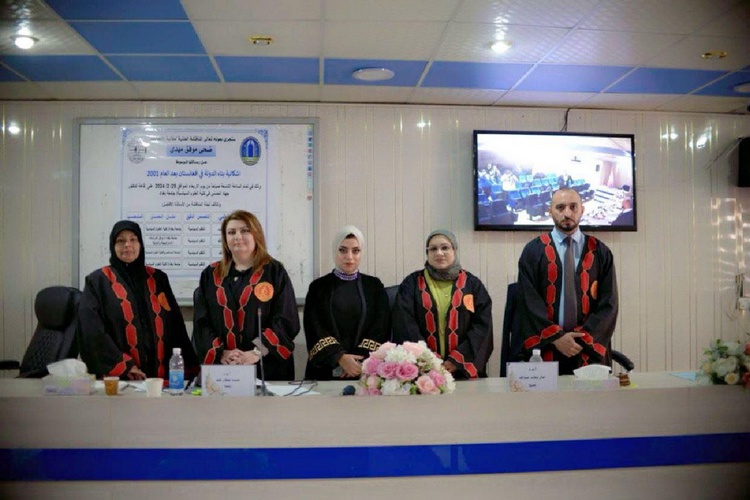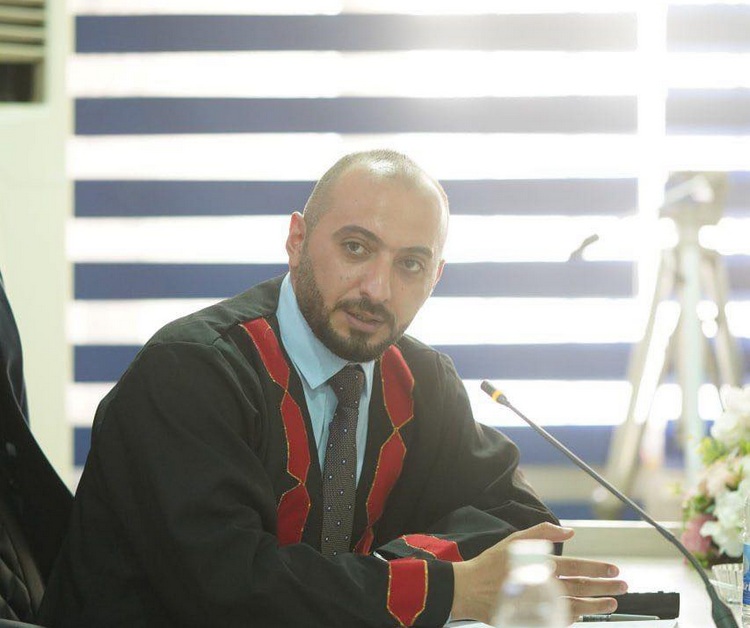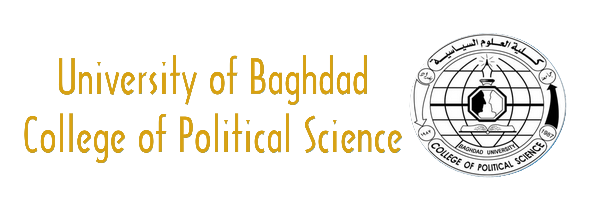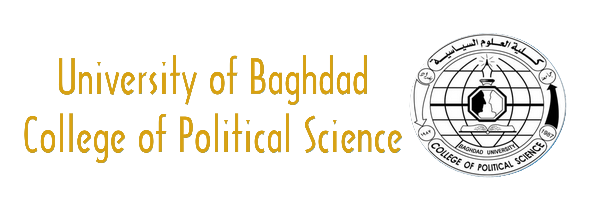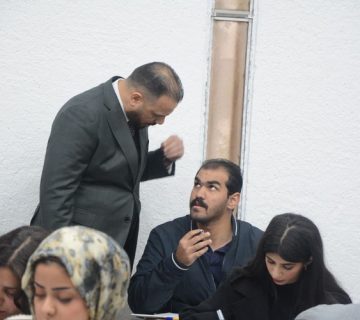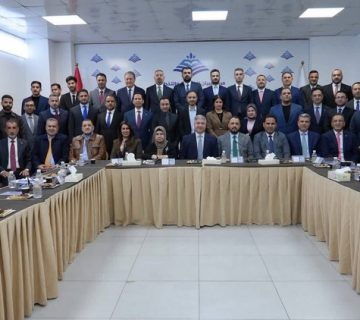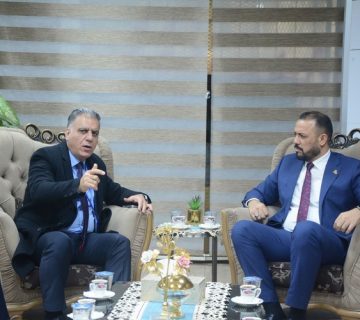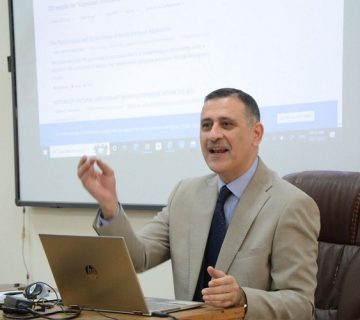The College of Political Science at the University of Baghdad discussed the master’s thesis entitled “The Problematic of State Building in Afghanistan After 2001” by student Dhuha Muwaffaq Mahdi under the supervision of Assistant Professor Dr. Hussein Ali Mukhtuf.
The thesis emphasized that state building today is one of the most pressing contemporary issues, as weak and failed states give rise to numerous global problems such as poverty, terrorism, and disease. The collapse of weak states in the 1990s led to significant humanitarian disasters and the tyranny of rulers over their people. Over time, functional imbalances accumulated, affecting economic growth, as collapsed states represent an extreme form of statehood characterized by power vacuums, rendering the state a mere geographic boundary without a political and economic entity capable of functioning.
The thesis concluded that state-building efforts in Afghanistan have taken place amidst severe ethnic and religious divisions, leading to societal disunity regarding reconstruction policies. Political corruption resulted from the composition of the government formed after the Bonn Agreement for Peace in 2002, which was based on ethnic and sectarian lines. The weak economic situation and the Afghan government’s inability to harness and distribute resources effectively for local development also contributed to the challenges. Furthermore, the aid provided by donor countries for state reconstruction was not utilized efficiently.
At the end of the discussion, the researcher was awarded a master’s degree with a “very good” grade, with best wishes for the success and prosperity of all our dear students.

